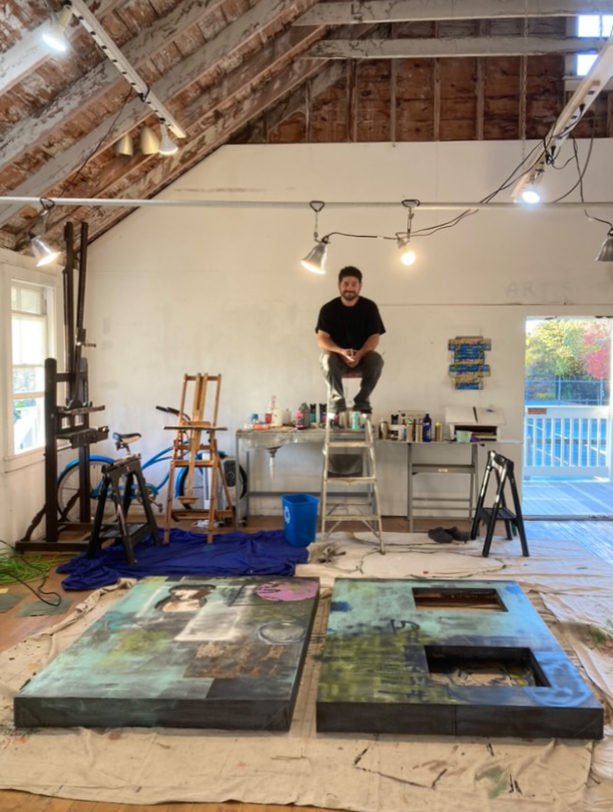Today we’d like to introduce you to Aaron Brodeur.
Hi Aaron, we’d love for you to start by introducing yourself.
The idea of becoming a professional artist first entered my mind in the late 1980s. Reading the comic strips in the Sunday funnies from the weekend newspapers inspired me, so I started coming up with my own characters. After each drawing was completed, I would proudly show my parents. They always found the drawings to be humorous, and they encouraged me to continue making them. On one occasion, I remember my dad telling me to keep all the drawings, because one day I could be a famous artist and the drawings could end up being worth a lot of money. My response was something like, “Yeah, right. That’ll never happen.” But at that moment the thought that I could grow up to be a professional artist took root in my mind. Having approval from my parents at such a young age was a defining point in my childhood development.
Would you say it’s been a smooth road, and if not what are some of the biggest challenges you’ve faced along the way?
Has becoming an artist been a smooth road? The way I think about it is that I didn’t become an artist, I was born one. It’s who and what I am. Under that lens, life and art are one in the same for me. Everything I’ve encountered, all the ups and downs, art has been with me and it has been a source of strength empowering my ability to continue adapting to life as it unfolds.
As you know, we’re big fans of you and your work. For our readers who might not be as familiar what can you tell them about what you do?
I tend to work in cycles, moving between different series and building them up simultaneously over time. I make paintings, sculptures, and sometimes things that fall somewhere in between. What I make is shaped by how I’m feeling, what I’ve been thinking about, or even what’s physically around me in the studio. I collect a lot—materials, references, bits of culture, personal interests—and instead of narrowing that down, I let them build into something larger. I like to see what happens when all those accumulations are pressed together and placed in conversation. My practice doesn’t follow a formula, and it’s not about trying to land on one big, clear answer. That mindset has become a kind of compass, and it’s what’s led to my upcoming show, Wrong Answers Only—an embrace of restless curiosity, where contradiction is welcomed, unpredictability is part of the process, and resolution isn’t required.
We’re always looking for the lessons that can be learned in any situation, including tragic ones like the Covid-19 crisis. Are there any lessons you’ve learned that you can share?
The Covid years were full of incredible silver linings. Everything mattered more. I had heightened awareness of the “Big Picture” ideas of what was really meaningful. The complex and unique combination of emotions that only a threatening pandemic could conjure granted me an unprecedented experience. A new genre of music entered my life in that time, and it summarized the intense emotions and deep sensations of nostalgia I was undergoing. It was a time that I found great amounts of beauty, despite the hardships that were partnered with it.
My artwork was energized, and it found new life during that time period. Schools were shut down, so home also took on the role of being a classroom and the kitchen table became the school desk for my two boys. In “Dad’s” home school, my boys had art class every day, so the three of us would get our sketch pads out and we would draw together when all the classwork had been completed. Drawing with my boys reconnected me to my childhood, and their art was a call back to the inspirations I had when I was young. Their drawings were fresh and exciting, and I fed off of their energy. I began to adopt the techniques and qualities that they were using because it resonated with me so much. Simultaneously, they were observing me in the same way. Collectively we developed a collaborative style with a vibrant visual language.
From spending all my time with my boys, I had the pleasure of learning the value of tapping into child-like creative instincts and applying it to my painting. It was the most fun I’ve ever had in all my years of making art. I’m a firm believer that children need to be allowed to practice their freedom for expressing their creativity, and their artistic accomplishments need to be celebrated. Never should a child’s artistic impulses be suppressed, they should be nurtured and supported because the most amazing artwork will come from them. It’s essential to teach them the discipline and structure of coloring inside the lines, and it’s equally as important to develop abstract thinking by coaching them how to color outside the lines and let their imaginations run wild.
Contact Info:
- Website: https://aaronbrodeurart.com
- Instagram: @aaron.brodeur_studio
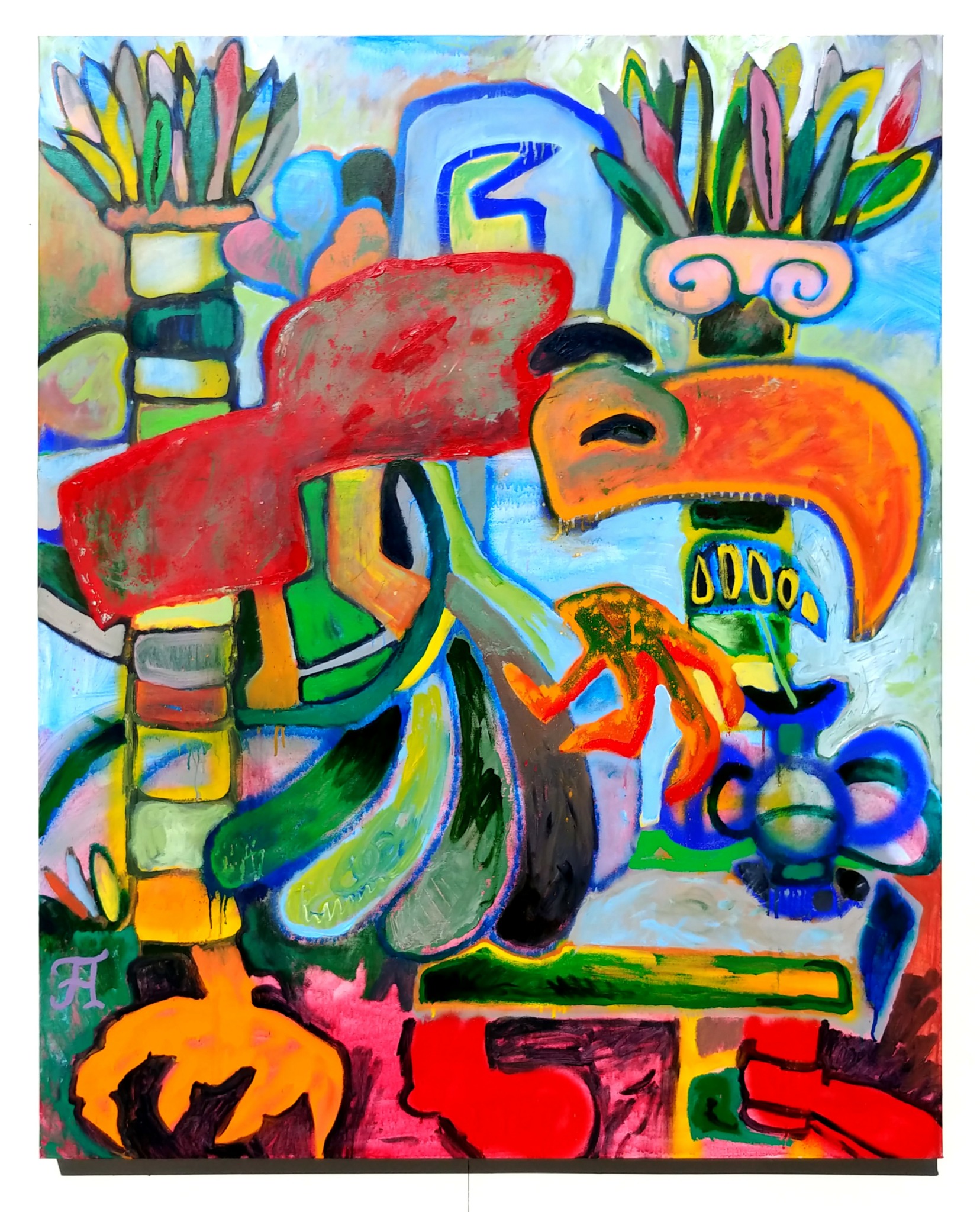

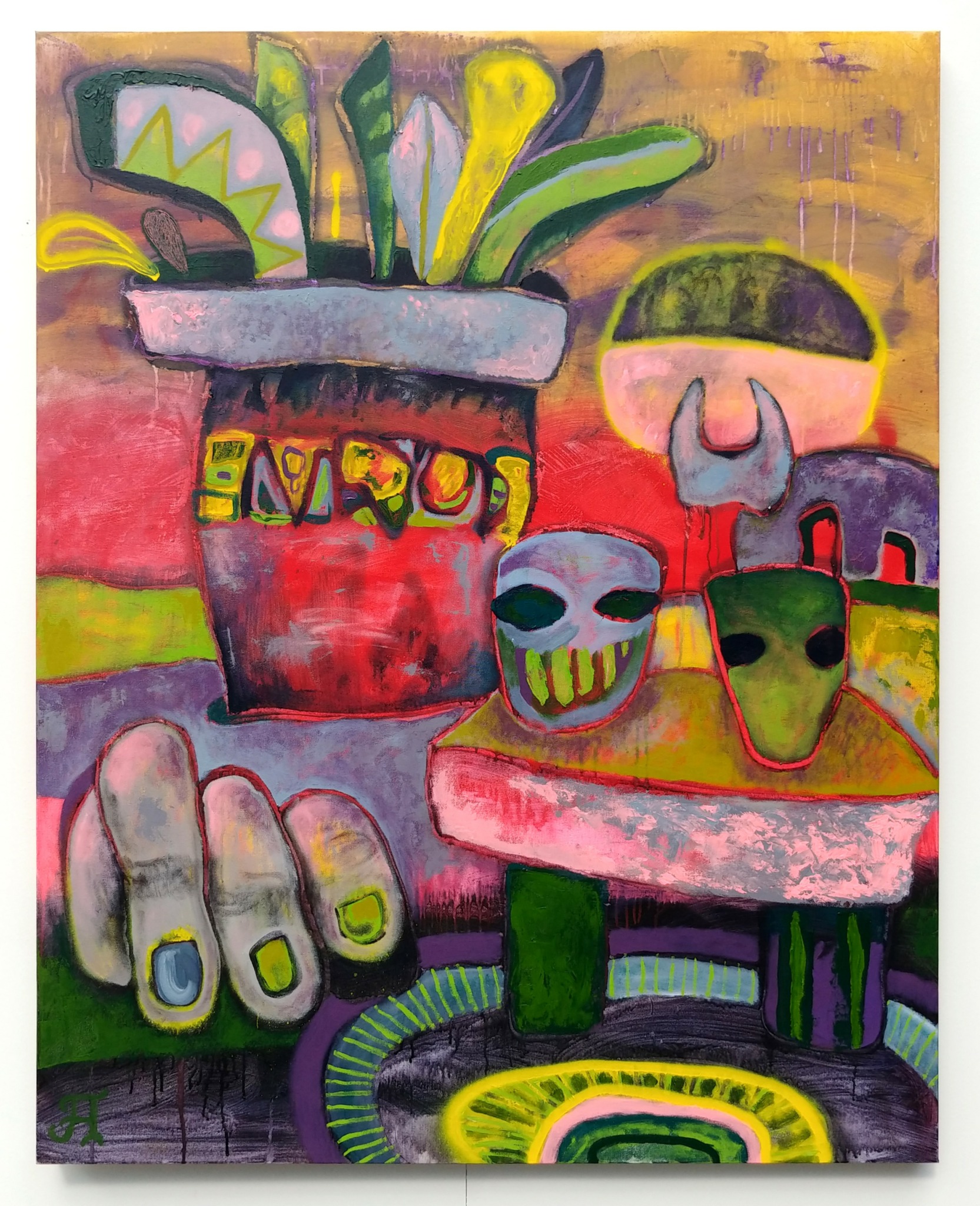

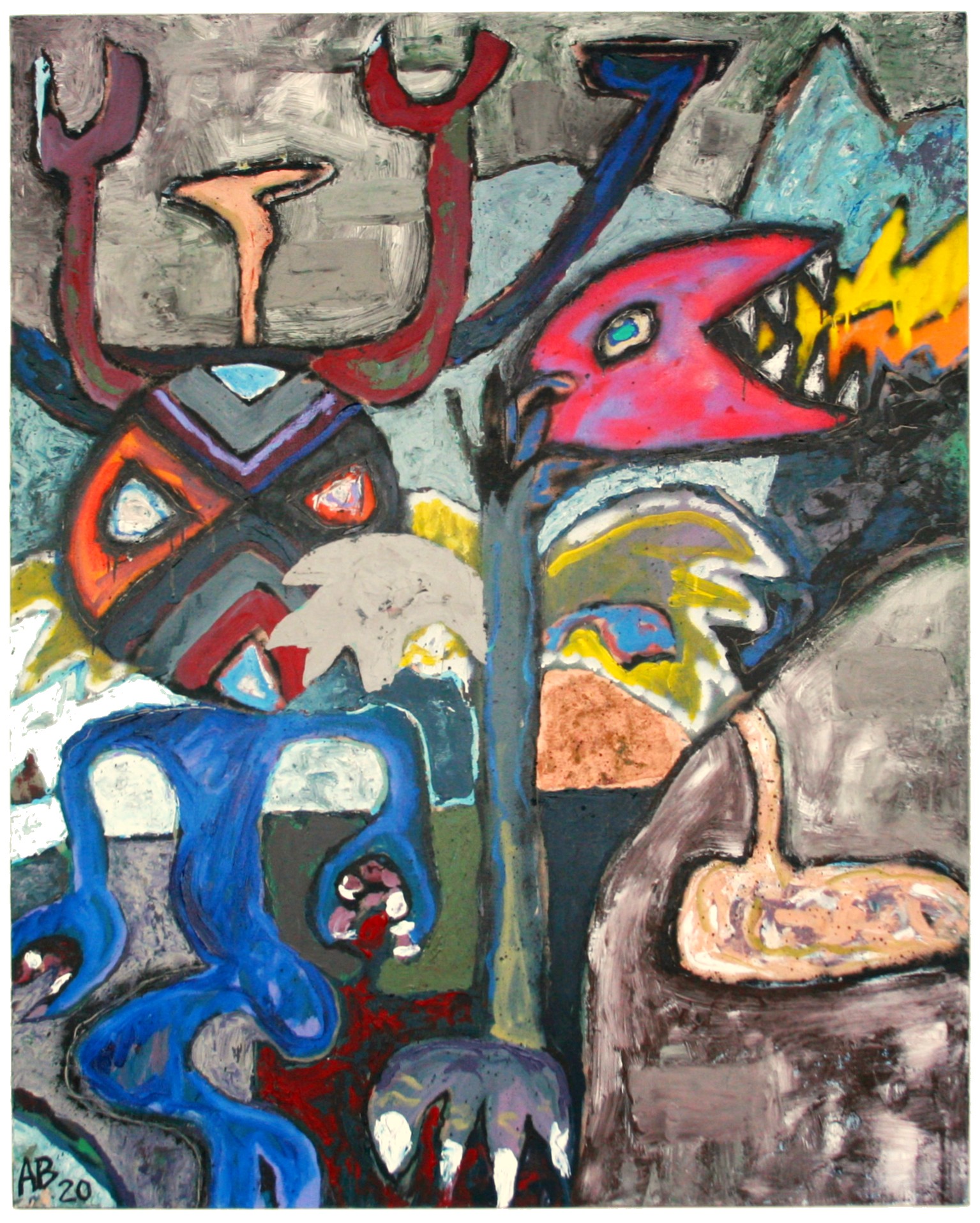
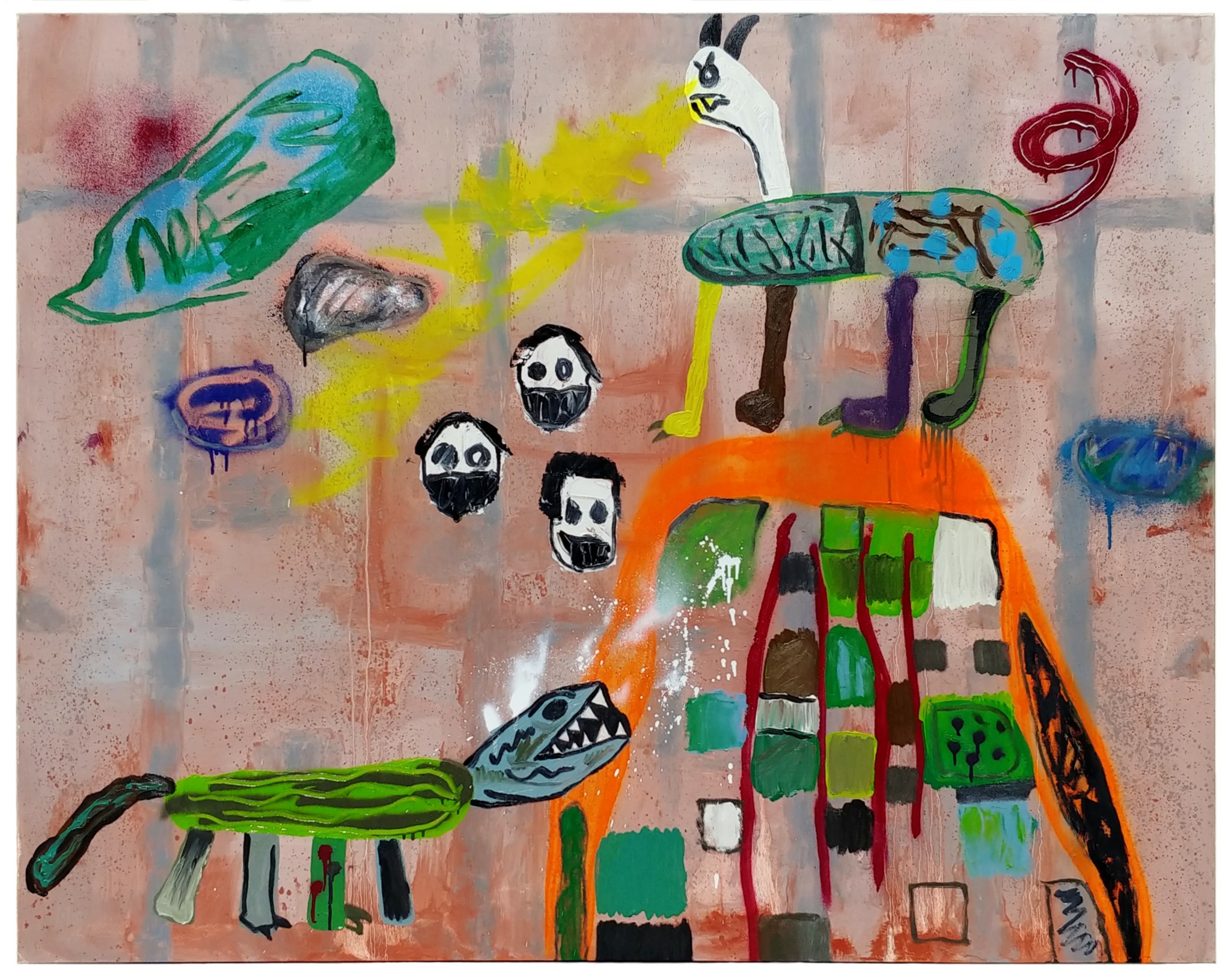
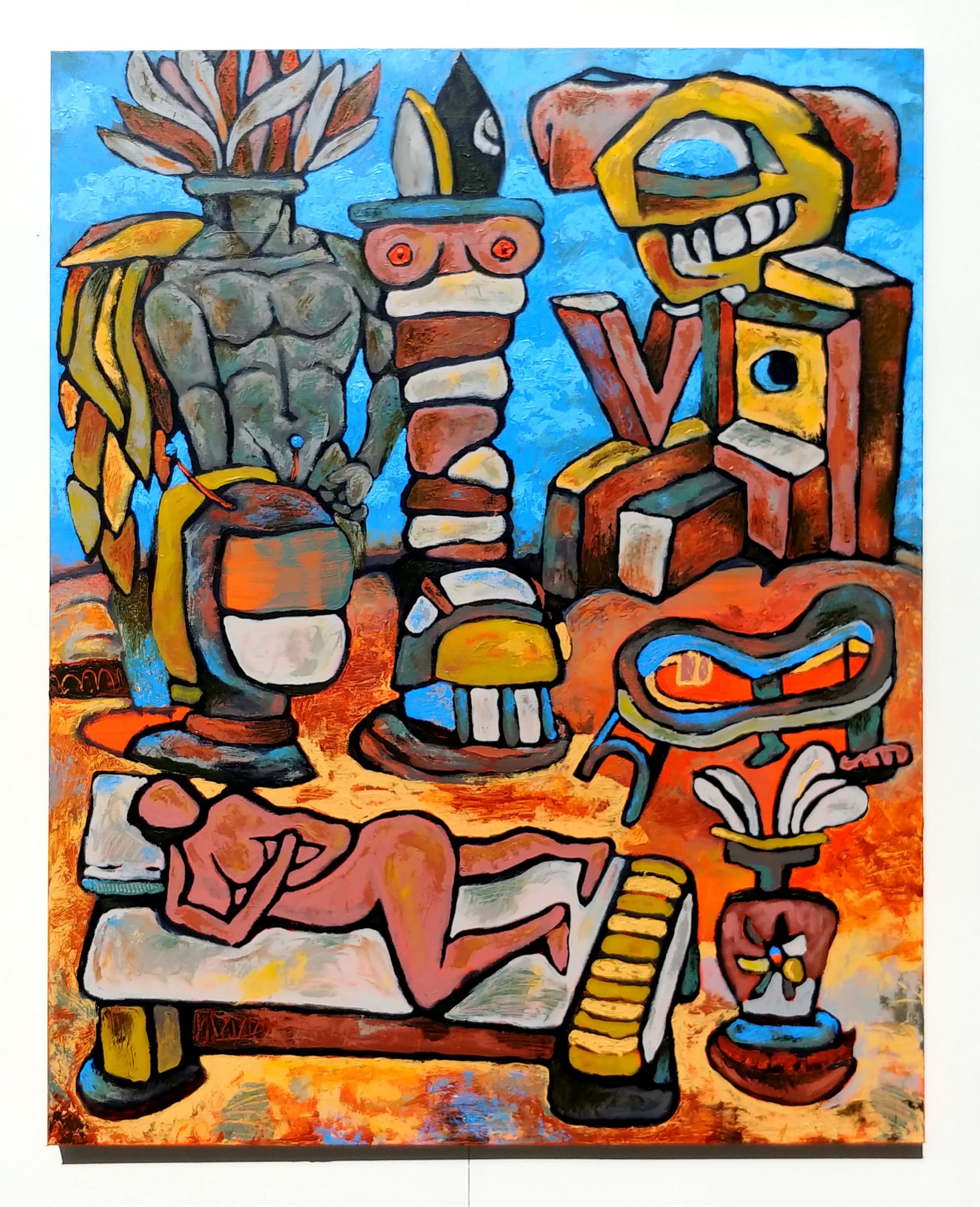
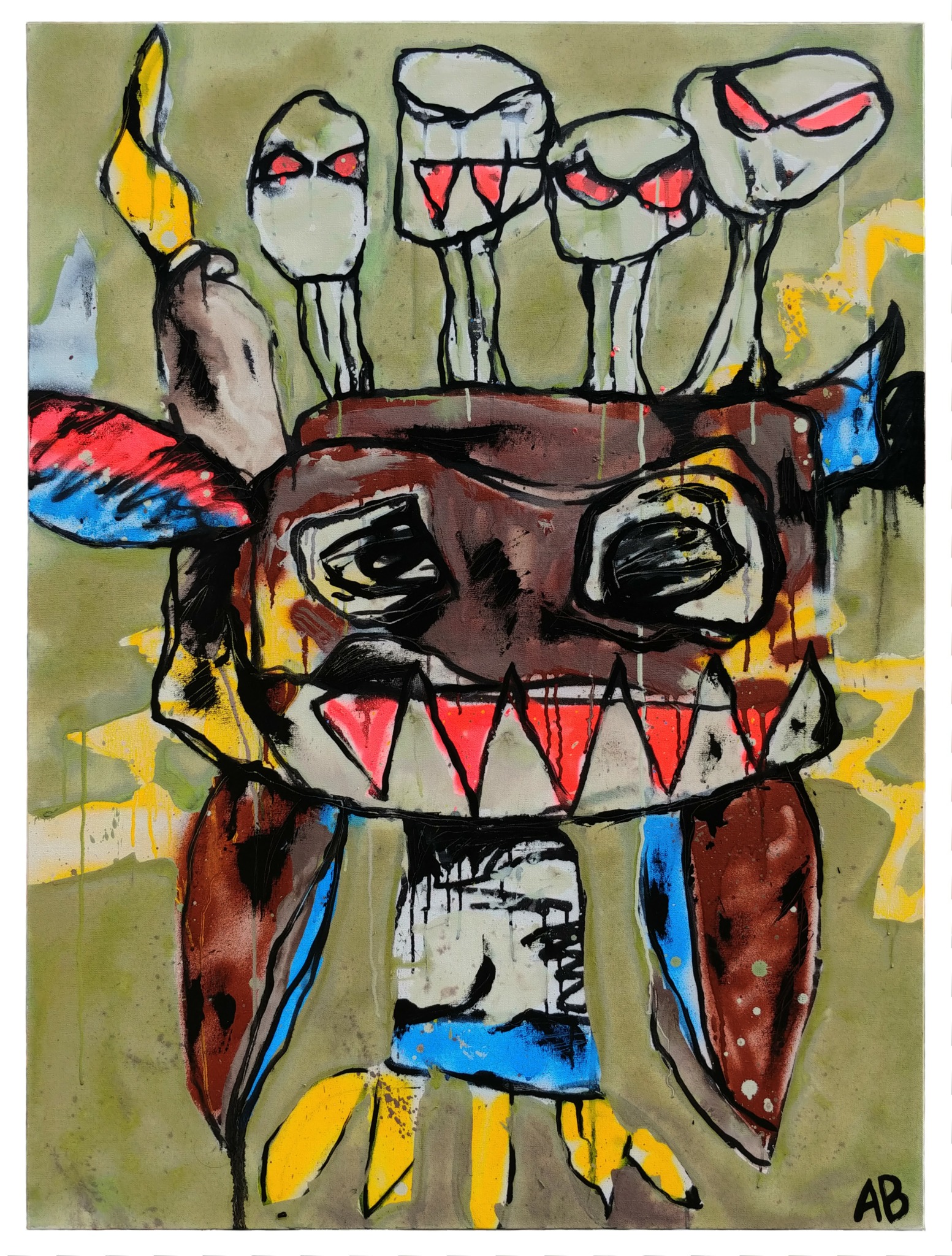
Image Credits
Photo of me in the studio by Mark Redden


